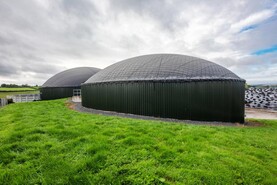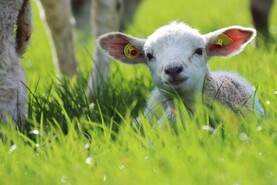There has been much debate recently around the landing of Russian fertiliser in Ireland.
Given the horrors from the Russian invasion of Ukraine, a comprehensive EU sanctions package was put in place that dramatically reduced commercial engagement with Russia.
While this escalated after the invasion on 24 February, sanctions at a lower level have been in place since 2014 when Russia invaded Crimea.
Traders will trade
In every commercial enterprise, traders always look and usually find ways to trade.
Whenever Brexit came into effect at the start of 2021, exports from the UK to the EU for animal and plant-based goods in particular slowed to a trickle.
This was because of the new layer of bureaucracy that returned when the UK was no longer an EU member.
However, in 2022 there has been a considerable rebound in this trade, because exporters have in time adapted to the new rules and while it is more difficult than before trade continues.
The big issue in trading with countries that are subject to sanctions is operating within the sanctions that are imposed.
While traders may look for exceptions or opportunities, the reality is that the rules are pretty clearly defined and, if required, the authorities can provide clarification.
Emotional impact
When something is so horrendous as the invasion of Ukraine, human emotions are naturally triggered.
In the early days of the invasion, countries across Europe including Ireland couldn’t do enough for refugees fleeing the war.
However, as time progresses and the effect of thousands of displaced people arriving into different communities takes effect, human emotion gives way to a more pragmatic 'how do we manage this issue'.
It is a little bit similar when considering the import and use of Russian fertiliser.
The rules appear clear - EU imports are allowed by the sanctions, but then there is the issue of moral consideration.
Given what has happened in Ukraine, there is an inclination to want nothing to do with Russia or its exports.
Where companies or indeed individual farmers have strong feelings about this, it is perfectly acceptable not to do business.
Moral pressure is immoral
However, what is not acceptable is farmers being pressurised into not using Russian fertiliser when it is legal to do so.
It is very easy and often tempting for people usually far removed from agriculture to have strong positions and lean on others to adopt the same.
How often do the people who clock up thousands of airmiles live in large energy-hungry houses and are big users of consumer goods and gadgets take the position that farmers need to cut livestock numbers and their income in order to reduce emissions?
Our dairy and pigmeat companies export to countries all around the world
The other difficulty with the moral debate is where does it end? If the court of public opinion was to decide it is unacceptable for farmers to use Russian fertiliser no matter how legal it is, does the same rule apply to where we sell out products?
Our dairy and pigmeat companies export to countries all around the world, many of whom have dubious human rights practices, though with less profile than what is happening in Ukraine.
Taking this a step further, if as consumers we consider where our smartphone or designer trainers are made, a moral argument could be made to avoid them in many cases.
This is why most people are happy to live with the principle that if Government and the authorities allow it be imported, it is okay to buy it.
Legality trumps morality
This also applies when something is illegal, even if there appears no good reason (moral) why this should be.
A good example is using growth-promoting hormones in cattle to produce more beef.
It is legal in most places outside of the EU and they are scientifically safe, as found by the World Trade Organisation (WTO) when finding in favour of the US in a case taken against the EU.
However, they remain banned in the EU and, therefore, farmers have to comply with this because it is the law and it is no defence to say that they are “morally” okay because they are used elsewhere.
The bottom line for Irish farmers has to be if it is legal, you are fine - but, as always, it is a personal choice on what you buy in relation to fertiliser or any other farm input.
There is general acceptance that food production is essential, which is why fertiliser is exempt from sanctions.
It is the same with gas imports from Russia - they are also not banned and still widely used in the EU, even as the EU looks to reduce dependency.
Making moral decisions on going beyond what the law requires should be personal choice alone and not imposed on anyone else.
Read more
Over 100,000t of Russian fertiliser imported since war started
Aurivo, Dairygold and Lakeland not ruling out Russian fertiliser
‘Anything to do with food production’ exempt from sanctions - Taoiseach
An uncomfortable but necessary dependence on Russia
There has been much debate recently around the landing of Russian fertiliser in Ireland.
Given the horrors from the Russian invasion of Ukraine, a comprehensive EU sanctions package was put in place that dramatically reduced commercial engagement with Russia.
While this escalated after the invasion on 24 February, sanctions at a lower level have been in place since 2014 when Russia invaded Crimea.
Traders will trade
In every commercial enterprise, traders always look and usually find ways to trade.
Whenever Brexit came into effect at the start of 2021, exports from the UK to the EU for animal and plant-based goods in particular slowed to a trickle.
This was because of the new layer of bureaucracy that returned when the UK was no longer an EU member.
However, in 2022 there has been a considerable rebound in this trade, because exporters have in time adapted to the new rules and while it is more difficult than before trade continues.
The big issue in trading with countries that are subject to sanctions is operating within the sanctions that are imposed.
While traders may look for exceptions or opportunities, the reality is that the rules are pretty clearly defined and, if required, the authorities can provide clarification.
Emotional impact
When something is so horrendous as the invasion of Ukraine, human emotions are naturally triggered.
In the early days of the invasion, countries across Europe including Ireland couldn’t do enough for refugees fleeing the war.
However, as time progresses and the effect of thousands of displaced people arriving into different communities takes effect, human emotion gives way to a more pragmatic 'how do we manage this issue'.
It is a little bit similar when considering the import and use of Russian fertiliser.
The rules appear clear - EU imports are allowed by the sanctions, but then there is the issue of moral consideration.
Given what has happened in Ukraine, there is an inclination to want nothing to do with Russia or its exports.
Where companies or indeed individual farmers have strong feelings about this, it is perfectly acceptable not to do business.
Moral pressure is immoral
However, what is not acceptable is farmers being pressurised into not using Russian fertiliser when it is legal to do so.
It is very easy and often tempting for people usually far removed from agriculture to have strong positions and lean on others to adopt the same.
How often do the people who clock up thousands of airmiles live in large energy-hungry houses and are big users of consumer goods and gadgets take the position that farmers need to cut livestock numbers and their income in order to reduce emissions?
Our dairy and pigmeat companies export to countries all around the world
The other difficulty with the moral debate is where does it end? If the court of public opinion was to decide it is unacceptable for farmers to use Russian fertiliser no matter how legal it is, does the same rule apply to where we sell out products?
Our dairy and pigmeat companies export to countries all around the world, many of whom have dubious human rights practices, though with less profile than what is happening in Ukraine.
Taking this a step further, if as consumers we consider where our smartphone or designer trainers are made, a moral argument could be made to avoid them in many cases.
This is why most people are happy to live with the principle that if Government and the authorities allow it be imported, it is okay to buy it.
Legality trumps morality
This also applies when something is illegal, even if there appears no good reason (moral) why this should be.
A good example is using growth-promoting hormones in cattle to produce more beef.
It is legal in most places outside of the EU and they are scientifically safe, as found by the World Trade Organisation (WTO) when finding in favour of the US in a case taken against the EU.
However, they remain banned in the EU and, therefore, farmers have to comply with this because it is the law and it is no defence to say that they are “morally” okay because they are used elsewhere.
The bottom line for Irish farmers has to be if it is legal, you are fine - but, as always, it is a personal choice on what you buy in relation to fertiliser or any other farm input.
There is general acceptance that food production is essential, which is why fertiliser is exempt from sanctions.
It is the same with gas imports from Russia - they are also not banned and still widely used in the EU, even as the EU looks to reduce dependency.
Making moral decisions on going beyond what the law requires should be personal choice alone and not imposed on anyone else.
Read more
Over 100,000t of Russian fertiliser imported since war started
Aurivo, Dairygold and Lakeland not ruling out Russian fertiliser
‘Anything to do with food production’ exempt from sanctions - Taoiseach
An uncomfortable but necessary dependence on Russia






 This is a subscriber-only article
This is a subscriber-only article











SHARING OPTIONS: